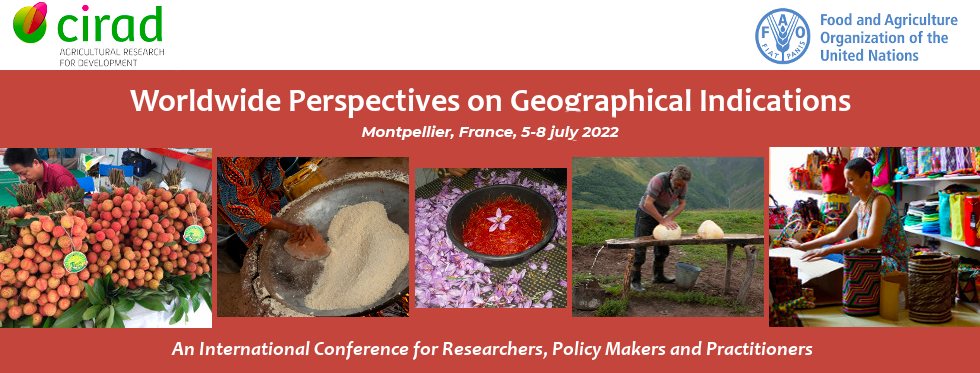Geographical Indications (Appellations of Origin and Denominations of Origin) are Intellectual Property Rights, subject to special protection in International Treaties. The Paris Convention for the Protection of Industrial Property (1883) mentions DO as IPR but gives no special regulation.
The Lisbon Agreement for the Protection of AO and their International Registration (1958) ensure protection against any usurpation or imitation, even if the products true origin is indicated or if the appellation is used in translated form or accompanied by terms such as: kind, type, imitation, etc.
Among WTO's bindings legal instruments, Trade-Related Aspects of Intellectual Property Rights Agreement (1994), gives two types of protection. The relative protection, for general product, which is legally based on the Unfair Competition regulation, placing the burden to prove the infringement of illegitimate sign use. And, the absolute protection, only for wines and spirits, similar as granted by Lisbon Agreement, which makes it easier to prove the illegitimate use of the sign.
According with TRIPs, three legal instruments could be used for protection of Indications of Geographical Origin, those are: (i) unfair competition regulation, (ii) trademark law, and (iii) sui generis systems. Legal protection through the last two options, mostly, is based on the idea of granting legal monopolies to the legitimate owners.
Although it allows producers to establish the distinctive sign's goodwill, essential characteristic for any IGO, sometimes the actions developed through the granted legal monopoly, might be turned into an abuse of dominant position in the market.
The problem is not legal structures that confer special protection to legitimate users of IGO, on the contrary, those legal tools must be prevented from being improperly used for harmful actions.
IGO should never be to undermine the position acquired in the market by a competitor.
The ruling ”Consejo Regulador Denominaci´on Origen Calificada Rioja c/ EN – IN.Vinicultura – Resol 32/02” by the Federal Administrative Court in Argentina (2012), should be quoted as an example. The term ”Rioja” was used as an IGO for Wines, by both Argentinians and Spanish producers. This was questioned by the late ones, despite the exception contained in TRIPs Agreement –article 23.3- that finally was the legal foundation of the ruling.
There is not only one definition for IGO, unlike other IPRs (lack of uniformity with different legal scopes, depending on the applicable local regulation).
Our proposal is based on the legal recognition of exclusive rights on distinctive signs for producers and legitimate users of IGO, but we encourage their enforcement to be exercised through the unfair competition rules. The Madrid Agreement for the Repression of False or Deceptive Indications of Source on Goods (1891) was based on the same central ideal.
We consider that a new international criteria of legal interpretation should be promoted, through a new model Law, taking into consideration previous ones (i.e. WIPO Publication 809)
The legal assessment of the infringement, should be based on a legal fiction: a predetermined average consumer, which helps legal operators to elucidate when an act of passing off is taking place.



